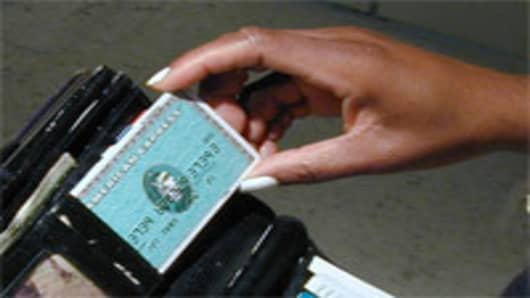AmEx shares were more than 5 percent higher in late trading Thursday. The stock finished the regular New York Stock Exchange trading session up 7.93 percent at $20.97.
The company's shares have risen 12 percent in 2009. Get after-hour quotes for American Express by clicking here.
Known for catering to a well-to-do crowd, AmEx said it did see some improvement in early delinquency rates during the quarter, but overall, credit remained weak.
AmEx took a $1.80 billion provision for loan losses, 49 percent higher than its provision in the first quarter last year. It saw its loan-loss rates in its U.S. card business nearly double to 8.5 percent from 4.3 percent a year ago on a managed basis, which includes card loans that are securitized.
AmEx reduced expenses by 22 percent in the quarter to $3.6 billion. The company also generated $3.5 billion of new deposits and ended the quarter with $25 billion of excess cash and securities. AmEx said it plans to continue to fund 2009 operations primarily through deposits.
Late last year, AmEx received approval to become a bank holding company, which allows it to accept deposits and permanently access financing from the Federal Reserve. The move surprised investors, who took it as a sign of how severe the credit card giant's troubles had become.
Funding its daily operations had become more difficult and more costly amid the credit crisis and as credit card holders struggled to pay their balances. The securitization market, which AmEx uses to raise operating capital, dried up as investors shied away from purchasing all but the safest forms of debt. While the credit markets have thawed somewhat since the fall, they remain challenging.
The status change also enabled AmEx to tap into the government's $700 billion financial bailout package. In January, the company received a $3.4 billion investment from the U.S. Treasury Department in the form of a preferred stock purchase.
- Reuters and AP contributed to this report.


